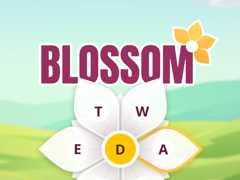Definition
Definition
Did you know?
Synonyms
Synonym Chooser
Example Sentences
Word History
Phrases Containing
Rhymes
Entries Near
Related Articles
- To save this word, you'll need to log in.
illusion
noun
Illustration ofillusion

- a andb are equal in length
Did you know?
Allusion andIllusion
Allusion andillusion may share some portion of their ancestry (both words come in part from the Latin wordludere, meaning “to play”), and sound quite similar, but they are distinct words with very different meanings. An allusion is an indirect reference, whereas an illusion is something that is unreal or incorrect. Each of the nouns has a related verb form:allude “to refer indirectly to,” andillude (not a very common word), which may mean “to delude or deceive” or “to subject to an illusion.”
Synonyms
delusion,illusion,hallucination,mirage mean something that is believed to be true or real but that is actually false or unreal.
delusion implies an inability to distinguish between what is real and what only seems to be real, often as the result of a disordered state of mind.
illusion implies a false ascribing of reality based on what one sees or imagines.
hallucination implies impressions that are the product of disordered senses, as because of mental illness or drugs.
mirage in its extended sense applies to an illusory vision, dream, hope, or aim.
Examples ofillusion in a Sentence
Word History
Middle English, from Anglo-French, from Late Latinillusion-, illusio, from Latin, action of mocking, fromilludere to mock at, fromin- +ludere to play, mock — more atludicrous
14th century, in the meaning defined atsense 2b
Phrases Containingillusion
Rhymes forillusion
Browse Nearby Words
Cite this Entry
“Illusion.”Merriam-Webster.com Dictionary, Merriam-Webster, https://www.merriam-webster.com/dictionary/illusion. Accessed 18 Jul. 2025.
Kids Definition
illusion
nounMedical Definition
illusion
nounMore from Merriam-Webster onillusion
Nglish:Translation ofillusion for Spanish Speakers
Britannica.com:Encyclopedia article aboutillusion
Subscribe to America's largest dictionary and get thousands more definitions and advanced search—ad free!
Merriam-Webster unabridgedMore from Merriam-Webster
[8]ページ先頭



